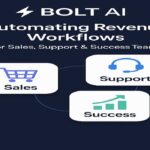Introduction: Innovation Needs More Than Ideas—It Needs Intelligence
In 2025, innovation isn’t just about creativity—it’s about computation. As product life cycles shrink and markets demand faster turnarounds, businesses are looking to artificial intelligence to accelerate their R&D and product development pipelines. But adopting AI without clear direction can lead to wasted investment, misaligned tools, and stalled innovation. That’s where AI consulting firms bring transformative value.
By bridging technical capabilities with strategic execution, consultants help companies harness AI to not only optimize current product strategies but also uncover entirely new lines of innovation. From pharmaceuticals to consumer tech, AI is redefining what’s possible in research and product design. And the best results come when this potential is guided by seasoned AI advisors.
AI in Product Development: Speed Meets Precision
Product development has traditionally relied on trial-and-error cycles, costly prototyping, and siloed decision-making. AI breaks this mold by introducing predictive insights, simulation capabilities, and intelligent automation into every phase of the product lifecycle.
Consulting firms help organizations identify where AI can deliver the most value—be it generative design, demand forecasting, or customer behavior analysis. They introduce tools like machine learning models that can simulate product performance or optimize feature prioritization based on real-world usage data. With the help of consultants, AI becomes a strategic tool—not just a technical asset—enabling faster go-to-market without compromising quality or customer fit.
By embedding AI in product strategy, businesses reduce development time, lower risk, and bring more customer-centric products to life.
AI in R&D: Unlocking Data-Driven Discovery
Research and Development has always been the heart of long-term innovation. Yet, R&D is often constrained by resource-heavy experimentation, unpredictable outcomes, and slow validation cycles. AI is rewriting that script.
With AI-powered analytics, pattern recognition, and autonomous experimentation, companies can drastically shorten their R&D timelines. Consultants help R&D teams integrate AI into experimental design, hypothesis generation, and even real-time lab automation. In sectors like biotech, materials science, and engineering, AI consulting accelerates discovery—from molecules to mechanisms.
Crucially, consultants also bring data governance, model validation, and reproducibility frameworks—ensuring that AI-driven R&D meets the same scientific rigor as traditional methods.
The Consulting Edge: Connecting Data, Tools, and Teams
While AI tools are widely available, their true value comes from smart integration. AI consultants specialize in aligning AI tools with business goals, existing tech stacks, and cross-functional workflows.
They guide organizations through every phase—from opportunity mapping and model development to deployment and monitoring. They help select the right AI platforms, define success metrics, and establish feedback loops across product and R&D teams.
This alignment ensures that AI doesn’t become another disconnected initiative. Instead, it powers a continuous innovation engine where insights are turned into impact—faster, smarter, and at scale.
Real-World Impact: Innovation That Drives ROI
From reducing development costs by 30% to improving prototype accuracy through AI-generated testing data, organizations across industries are seeing measurable ROI from AI-led R&D and product design. Consultants amplify this impact by designing customized AI roadmaps, streamlining implementation, and ensuring change management across teams.
Whether it’s launching AI-powered product recommendation engines or creating digital twins for accelerated testing, businesses that invest in AI consulting are not just digitizing—they’re transforming how innovation happens.
Conclusion: Future-Proofing Innovation with AI Consulting
AI in product development and R&D isn’t a luxury—it’s a necessity for companies looking to stay competitive in a fast-moving world. But scaling AI requires more than just tools. It requires vision, strategy, and expertise.
Consulting firms provide the strategic muscle and technical finesse to unlock AI’s full potential—helping organizations turn ideas into market-ready products, and research into revolutionary breakthroughs.
If your business is looking to reimagine innovation in 2025, the question isn’t “should we use AI?” It’s “how quickly can we get expert help to do it right?”






